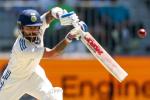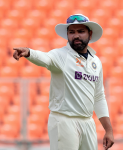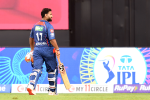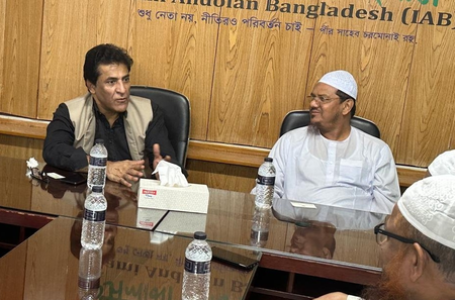
New Delhi: The Indian Premier League (IPL) is back at its home venues for the first time in four years. And with the IPL gearing up to commemorate its 15th anniversary, there are few things that the cricket fans could watch one last time.
In all likelihood, it would be the last time that the three greats of Indian cricket — Mahendra Singh Dhoni, Virat Kohli, and Rohit Sharma — could be seen playing against each other for the last time. The incessant rumours about Mahendra Singh Dhoni’s probable retirement are going to make this season a special one.
The IPL has been propelled by megastars Dhoni, Virat, and Rohit for the past 14 years, hooking the nation’s cricket-obsessed fans for close to two months each year. Dhoni, who is getting close to 42, has defied the law of diminishing returns.
When it comes to MSD, he would like to match the Mumbai Indians’ record of five championships despite the fact that his team finished outside the play-offs last season. But there are a few more innovations, as they are being called by IPL organisers, like the Impact Player (IP) rule, DRS on wides and no-balls, and playing XIs being submitted after the toss, that are currently the hot topic of discussion amongst the cricket fans across the globe.
The IPL, as we all know, has been the favourite tournament for bookies across the Indian subcontinent. The cases of 2013 spot-fixing have still not been fully settled in the Supreme Court, and the IPL’s governing council has come up with rules that can again cause a lot of negative publicity for the game.
We all know that bookies play big on the IPL, and with teams to be exchanged after the toss, the betting market could attract huge bets on team combinations. Both teams will now have the chance to field a playing XI based on the result of the toss. The captains will have the choice to play an extra batter or a bowler, as is being demanded by the toss situation.
That’s why the betting pattern could well be different in the underworld as compared to the last 14 seasons. The impact player rule is also going to change the way T20 cricket is being played now.
It will be 12 against 12
The Impact Player rule has been added to the IPL’s playing rules for the 2023 season with the intention of innovating. The regulation permits a team to replace a player from the XI after the toss with an IP at any stage of an inning.
The restriction is that a team can only have four foreign players participate in the game. As a result, if four foreign players are in the starting XI, the IP can only be an Indian player. The goal of the new regulation was to give Indian players, particularly the bright, uncapped ones who don’t make the starting XI, more opportunities.
The IP rule was first tested in the 2022 Syed Mushtaq Ali Trophy, the domestic T20 league. However, the terms were a little different as a team had to choose an impact player before the toss, who then had to be introduced before the end of the 14th over of an inning.
The net result of that experiment came out to be nothing, as critics claimed that “the IP was used more for ‘damage control’ than as a ‘tactical instrument’.”
It was less than a month before the start of this IPL season that franchises were informed that they might finalise their XIs after the toss. This significantly diminished the tactical potential, as the two captains will now be carrying two different team sheets to the toss: “One for batting first and another for bowling first”.
The experience at Australia’s Big Bash was also not so encouraging when it came to IP regulation and its ‘X-factor’. The rule was discarded last year. As per the rule, a player may be substituted for a batsman or, for the fielding team, a bowler who has bowled no more than one over after the game’s 10th over. Yet, because of its limitations, the idea never truly caught on.
According to former Australian skipper Ricky Ponting, the new impact player rule may spell the end for “bits and pieces all-rounders”. The head coach of the Delhi Capitals is of the view that “this might lead to a variety of team combinations and tactical options”.
Going by this theory, the usage of IP depends on whether a team bowls or bats first. All captains will now carry a “bowling first team” or a “batting first team”. And obviously, if a team bats first, the IP would, in all probability, be a batter. Or, if a team bats first and loses an early wicket, it might want to bring in a batter straight on top of that.
So, there are a number of different ways to use it. But one thing is sure: “It will negate the role of all-rounders now”.
The days of bits-and-pieces players may now be over if this IP rule is persisted with in future tournaments as well!
—-INDIA NEWS STREAM



 by Chander Shekhar Luthra
by Chander Shekhar Luthra
















